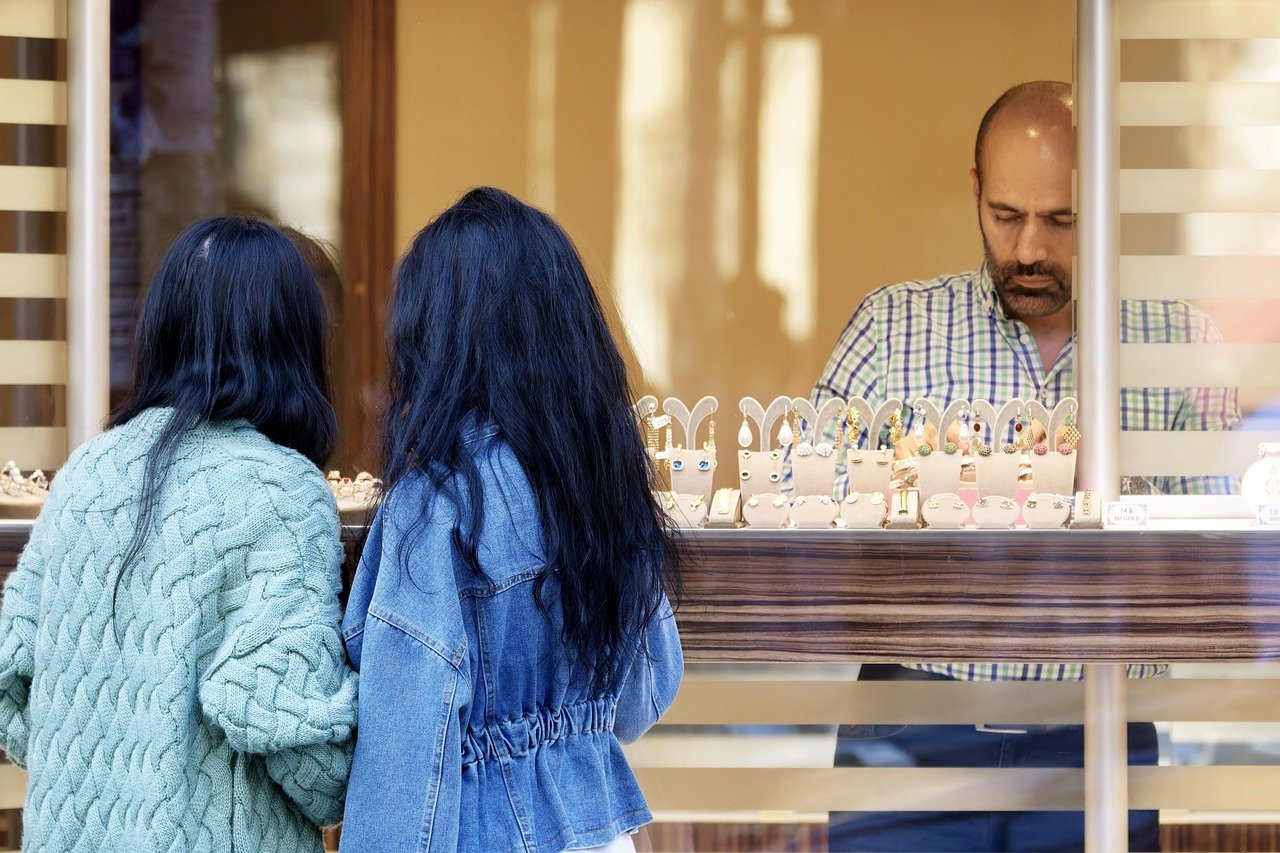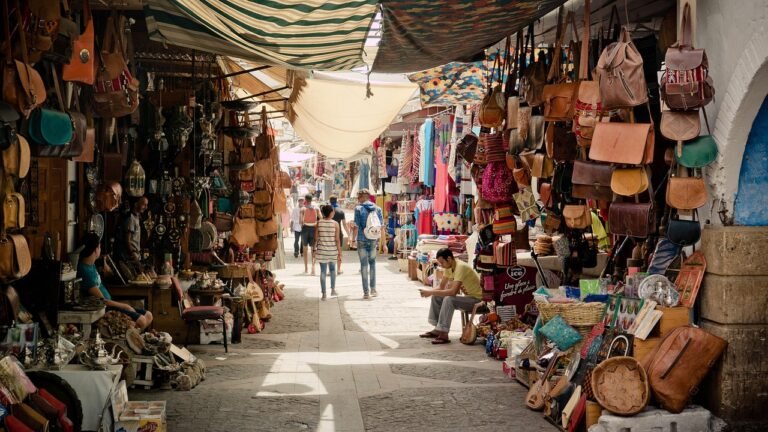Greet Shopkeepers in Arabic for Better Service
If you ever travel to an Arabic-speaking country, you will notice something right away. People love greetings. A good greeting is not just a polite habit. It sets the tone for the whole conversation. It can make the difference between a cold, quick exchange and a warm, friendly experience. This is true everywhere, but it feels especially important in Arab culture, where personal connection plays a big role in daily life.
One of the most common situations where greetings matter is when you enter a shop. Whether you are in a small market in Morocco, a busy street store in Egypt, or a modern mall in the Gulf, the first words you say can shape how the shopkeeper treats you. A friendly, culturally appropriate greeting often leads to better service, a smoother interaction, and sometimes even a lower price if you are negotiating.
Many Arabic learners focus on grammar, vocabulary, and pronunciation. Those are important skills. But real confidence comes when you can use the language naturally in real situations. Greeting shopkeepers is one of the simplest ways to practice this skill. It does not require long sentences. It just requires the right words, the right tone, and a basic understanding of cultural expectations.
When you greet a shopkeeper in Arabic, you do more than say hello. You show respect. You signal that you are not just a tourist passing through but someone who cares about connecting. Even a small effort goes a long way. Shopkeepers appreciate when a visitor uses their language. It creates a sense of trust. It often makes them more willing to help you find what you need or explain prices carefully.
In this article, we will explore different ways to greet shopkeepers in Arabic. We will look at simple phrases you can use, when to use them, and how to pronounce them correctly. We will also talk about body language, which is as important as the words themselves. You will learn how greetings change based on time of day and region. Some countries have slightly different expressions or customs, so knowing these variations helps you avoid awkward moments.
Our goal is not just to give you a list of phrases. We want you to understand the social meaning behind them. When you know why people greet each other a certain way, you can choose your words with confidence. You will sound more natural, and you will feel more comfortable.
Think about the last time you walked into a shop in your own country. Did the seller smile and greet you warmly? Did it make you feel welcome? The same idea applies when you are abroad. A short greeting in Arabic can open doors—literally and figuratively. By the end of this article, you will have the tools to start every shopping experience on the right foot.
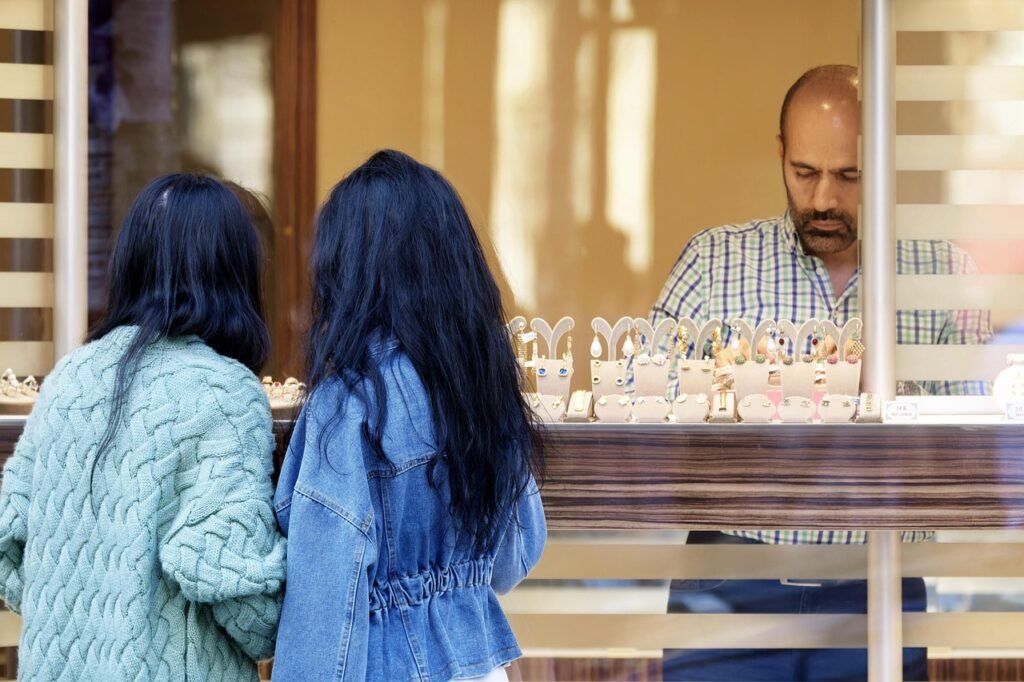
Part 1: The Essential Greetings
The most common and universal Arabic greeting is “As-salamu alaykum” (السلام عليكم).
It means “peace be upon you.”
This is more than just “hello.” It carries a warm, respectful tone that makes it appropriate in almost any setting. You will hear it in shops, markets, and offices, and between friends and strangers.
When someone says “As-salamu alaykum,” the correct reply is “Wa alaykum as-salam” (وعليكم السلام), which means “and peace be upon you too.” This back-and-forth shows mutual respect.
You can use “As-salamu alaykum” when you first walk into a shop, before asking about products or prices. Say it with a smile and calm tone. Most shopkeepers will reply with the standard response and often add a friendly nod or smile.
If you want to be extra polite, you can add a phrase like:
- “As-salamu alaykum wa rahmatullah” (السلام عليكم ورحمة الله)
“Peace be upon you and the mercy of God.”
This version is more formal and often used in religious or serious contexts, but some shopkeepers appreciate the effort.
Another common greeting is “Sabah al-khayr” (صباح الخير), which means “good morning.”
The reply is “Sabah an-noor” (صباح النور), “morning of light.”
This greeting works well in the morning hours. Using it can make the interaction feel more personal, especially in smaller shops where the seller might see the same customers every day.
For afternoons or evenings, you can use “Masa’ al-khayr” (مساء الخير), meaning “good evening.”
The reply is “Masa’ an-noor” (مساء النور).
When you are not sure about the time or just want something simple, stick with “As-salamu alaykum.” It works any time of day.
Pronunciation matters. If you mispronounce a word too much, the listener might not understand. Listen to native speakers, copy their rhythm, and keep your tone soft. Shouting a greeting sounds rude.
Body language is just as important as words. When you greet a shopkeeper:
- Make eye contact briefly
- Smile lightly
- Nod your head as a sign of respect
- Avoid crossing your arms or looking impatient
These small actions make the greeting feel genuine.
Remember that greetings are not just a formality in Arab culture. They open the conversation. If you skip them and just ask “how much?” or “give me this,” it can feel rushed or disrespectful. A short pause for a greeting sets a friendly tone and makes the conversation smoother.
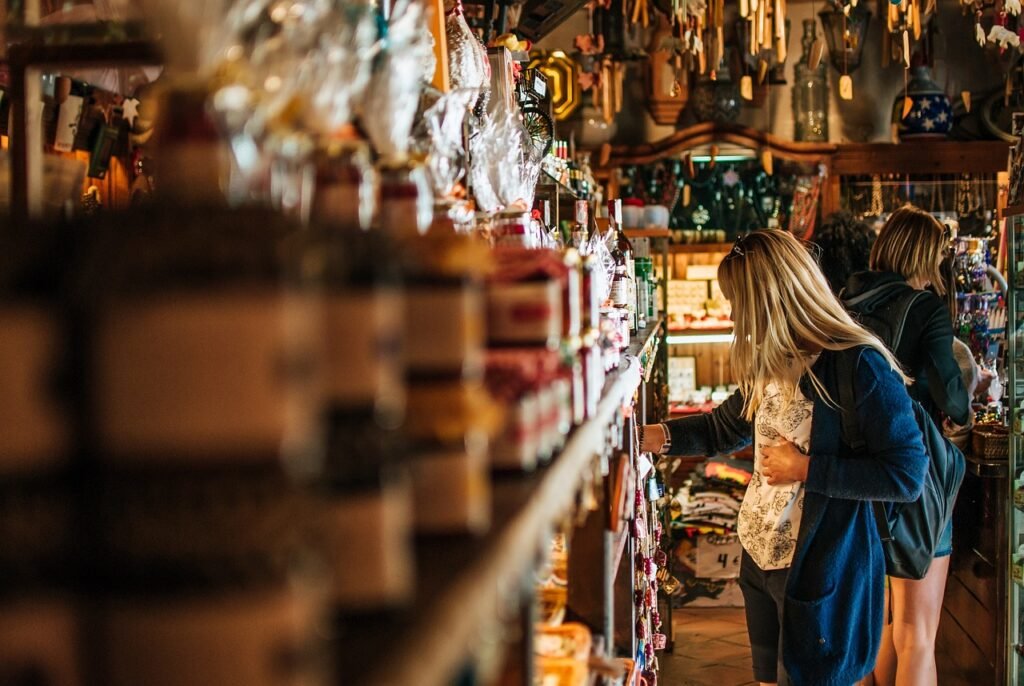
Part 2: Small Talk After the Greeting
A greeting is just the first step. In many Arabic-speaking countries, it is common to follow up with a short exchange before moving to business. This shows that you value the person, not just the transaction.
The most common follow-up is asking “How are you?”
In Arabic, the phrase depends on the region.
- In many countries, you can say “Kayfa haluk?” (كيف حالك؟) — formal, means “How are you?”
- In Egypt, you will often hear “Izayyak?” (for men) or “Izayyik?” (for women).
- In the Levant (Lebanon, Syria, Jordan, Palestine), a casual version is “Keefak?” (كيفك؟) for men or “Keefik?” for women.
- In the Gulf region, people say “Shlonak?” (شلونك؟) or “Shakhbarak?” (شخبارك؟) for men.
The replies are usually short and polite. Shopkeepers may say:
- “Ana bekhayr, alhamdulillah.” (أنا بخير، الحمد لله) — “I’m fine, thanks to God.”
- Or simply “Alhamdulillah.” (الحمد لله) — “Thanks to God.”
It is polite to answer with something like “Alhamdulillah” yourself, even if they do not ask you. It keeps the exchange balanced.
You can also add a simple wish for them:
- “In shaa’ Allah kull shay tamam.” (إن شاء الله كل شيء تمام) — “God willing, everything is good.”
- “Allah ysa‘dak.” (الله يسعدك) — “May God make you happy.”
These short, kind phrases make you sound warm and respectful.
Keep in mind that small talk does not have to be long. A simple two-line exchange is enough before you start asking for what you need. For example:
You: “As-salamu alaykum.”
Shopkeeper: “Wa alaykum as-salam.”
You: “Kayfa haluk?”
Shopkeeper: “Alhamdulillah. Welcome.”
You: “Alhamdulillah.” (then move to your question or purchase)
Tone matters more than the exact words. Speak calmly, not too fast. If you sound rushed, the shopkeeper may feel pressured. A relaxed tone creates a friendly atmosphere.
These exchanges also give you a few seconds to observe the shop, see what is available, and think about what you want to say next.
Making this small effort often leads to better service. Shopkeepers are more likely to help you patiently, explain products in detail, or even offer better prices when they feel respected.
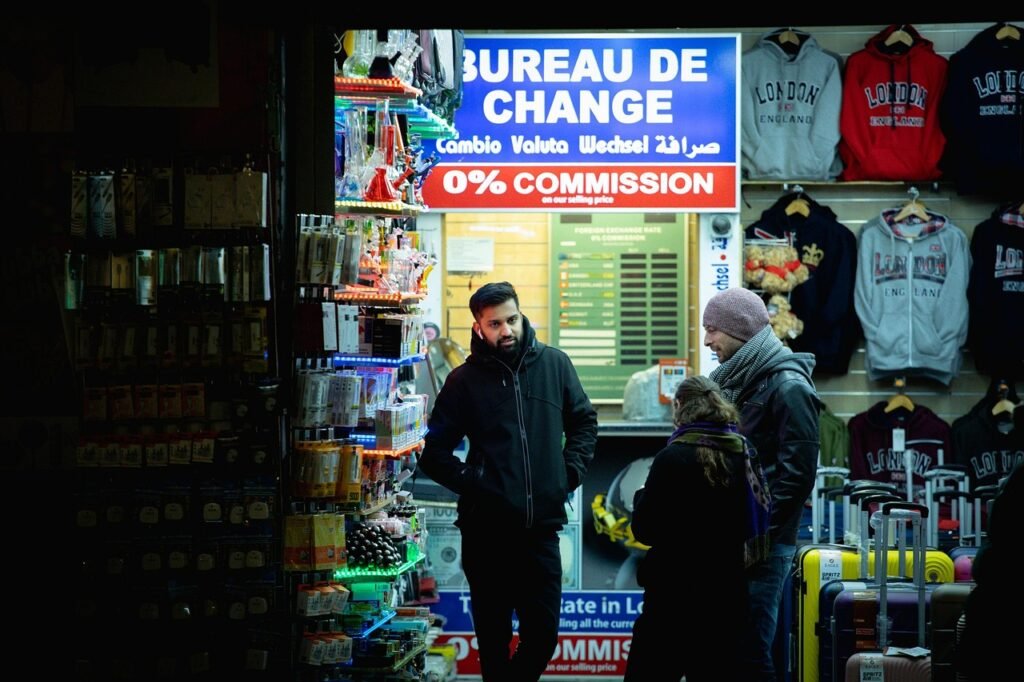
Part 3: Cultural Tips and Common Mistakes
Greeting shopkeepers in Arabic is more than words. It is about understanding culture and showing respect. Small differences in customs can change how your greeting is received.
One important tip is observe the context. A small market in Morocco or Egypt has a very different feel from a modern mall in the UAE. In traditional markets, shopkeepers often expect longer greetings and small talk. In modern malls, greetings are usually shorter but still polite. Adjust your approach based on the setting.
Avoid rushing. Entering a shop and immediately asking for prices or products without greeting can seem rude. Even a few seconds to say “As-salamu alaykum” and ask “Kayfa haluk?” sets a friendly tone.
Pay attention to body language. Arab culture values eye contact and a relaxed posture. A smile goes a long way. Avoid looking impatient or distracted. Crossing your arms or checking your phone while greeting can be seen as disrespectful.
Pronunciation matters, but don’t stress perfection. Shopkeepers will appreciate your effort to speak Arabic, even if it is not perfect. Avoid mimicking words mechanically. Speak naturally and slowly. People respond to effort and sincerity more than flawless pronunciation.
Be aware of regional variations. Phrases change slightly between countries:
- Egypt: “Izayyak” / “Izayyik”
- Levant: “Keefak” / “Keefik”
- Gulf countries: “Shlonak” / “Shakhbarak”
Using the local version when possible shows attentiveness and respect. If you are unsure, stick with the universal “As-salamu alaykum.”
Avoid sensitive topics. Do not comment on religion, politics, or personal matters. Stick to polite greetings, small talk about the day, or neutral phrases like “Alhamdulillah.” These keep the conversation friendly and professional.
Timing of greetings matters. In Arabic culture, people often greet according to the time of day:
- Morning: “Sabah al-khayr”
- Afternoon: “Masa’ al-khayr”
- Any time: “As-salamu alaykum”
Using the correct time-based greeting makes you seem aware and polite.
Finally, remember that greetings can influence the entire shopping experience. A respectful, friendly approach often leads to:
- More patient explanations about products
- Better customer service
- A sense of trust and mutual respect
Even if you are shy or not confident in Arabic, a simple greeting with a smile and eye contact is enough to make a positive impression. Shopkeepers notice sincerity more than fluency.
Part 4: Example Dialogues in Real Shopping Scenarios
Seeing greetings and follow-up phrases in action makes them easier to remember. Here are a few realistic situations you might face in Arabic-speaking countries.
Scenario 1: Small Market Shop
You walk into a small shop selling spices and teas in Morocco.
You: “As-salamu alaykum.”
Shopkeeper: “Wa alaykum as-salam. Welcome.”
You: “Kayfa haluk?”
Shopkeeper: “Alhamdulillah. And you?”
You: “Alhamdulillah.”
You: “How much is this saffron?”
Shopkeeper: “It is 200 dirhams per gram.”
You: “Shukran. Can I buy one gram?”
Notice how the short greeting and polite small talk create a positive tone. The shopkeeper responds patiently and gives you the information clearly.
Scenario 2: Clothing Store in a Mall
You enter a modern mall in Dubai.
You: “As-salamu alaykum.”
Shopkeeper: “Wa alaykum as-salam. Welcome.”
You: “Sabah al-khayr.”
Shopkeeper: “Sabah an-noor.”
You: “Do you have this shirt in medium?”
Shopkeeper: “Yes, I will show it to you.”
Even in a fast-paced mall, a short greeting like “As-salamu alaykum” and a time-based greeting such as “Sabah al-khayr” is enough to start the interaction on the right note.
Scenario 3: Souk or Bazaar in Egypt
You enter a bazaar in Cairo to buy souvenirs.
You: “As-salamu alaykum.”
Shopkeeper: “Wa alaykum as-salam. Welcome, my friend!”
You: “Izayyak?”
Shopkeeper: “Alhamdulillah. Look, we have fresh handcrafts today.”
You: “Mashallah, everything looks great. How much is this vase?”
Shopkeeper: “500 Egyptian pounds. I can offer 450 for you.”
You: “Alhamdulillah. Let’s do it.”
Here, greeting and short small talk build rapport, which helps in negotiating a better price.
Tips from These Examples
- Always start with a greeting before asking anything.
- Use short follow-up questions to show interest.
- Smile and maintain polite body language.
- Observe the shopkeeper’s response and adjust your tone accordingly.
- Using even a few local words shows respect and effort.
These dialogues illustrate how simple greetings and phrases lead to smoother interactions, better service, and a more enjoyable shopping experience.
Final Advice
Greeting shopkeepers in Arabic is simple, but it has a big impact. A friendly greeting opens doors, builds trust, and makes interactions smoother. Small efforts—saying “As-salamu alaykum,” asking “Kayfa haluk?,” or using time-based greetings—signal respect. They show that you care about the people you are interacting with, not just the purchase.
Here are key pieces of advice to keep in mind:
- Always greet first, even if it feels brief.
- Use simple phrases correctly rather than long sentences you might mispronounce.
- Pay attention to body language—eye contact, a smile, relaxed posture.
- Observe regional differences and adapt greetings accordingly.
- Small talk creates connection and can lead to better service or helpful explanations.
Learning to greet properly is just one part of becoming confident in Arabic. At Ramdani Arabic Academy, we provide lessons, courses, and articles designed to help learners like you use Arabic in real-life situations. Our focus is practical language that works outside the classroom, from shopping and traveling to professional and social interactions.
By practicing greetings, you not only improve your vocabulary and pronunciation, but you also gain insight into Arabic culture. Understanding these social norms helps you navigate everyday life more comfortably and confidently.
About the Author
Ramdani Mohamed is the founder of Ramdani Arabic Academy. With years of experience in teaching Arabic to learners worldwide, he combines practical language skills with cultural knowledge. His goal is to help students communicate naturally and confidently in Arabic, whether at home, while traveling, or in professional settings.
Taking the time to learn greetings and small talk is a small step that can have lasting effects on your interactions. The next time you enter a shop, market, or mall in an Arabic-speaking country, try greeting the shopkeeper warmly. Watch how the tone of the conversation changes. You will notice the difference immediately.
Ramdani Arabic Academy continues to offer resources and guidance to make learning Arabic approachable and practical. Start with greetings, then expand to full conversations, and gradually you will feel at ease speaking with anyone, anywhere.

